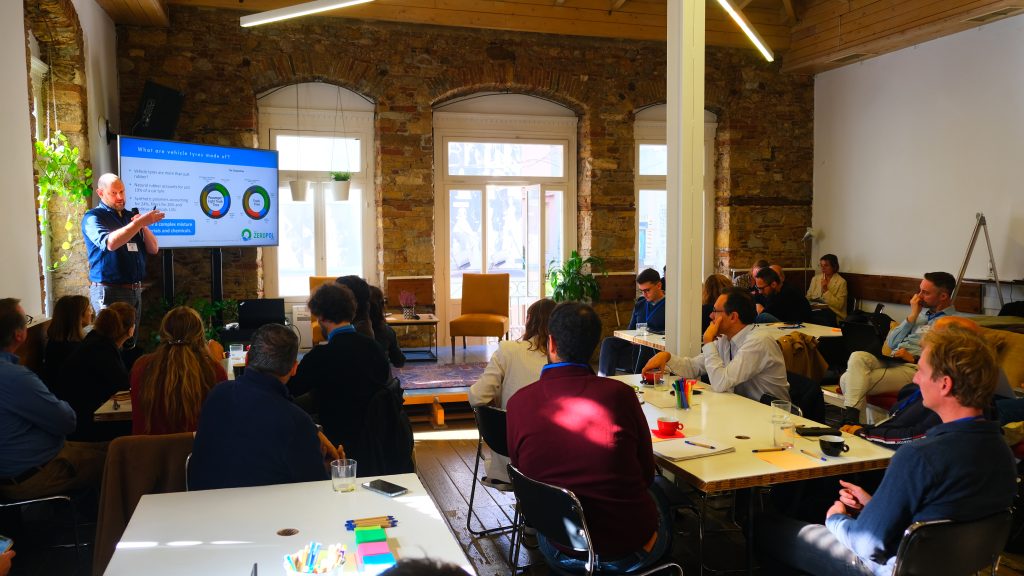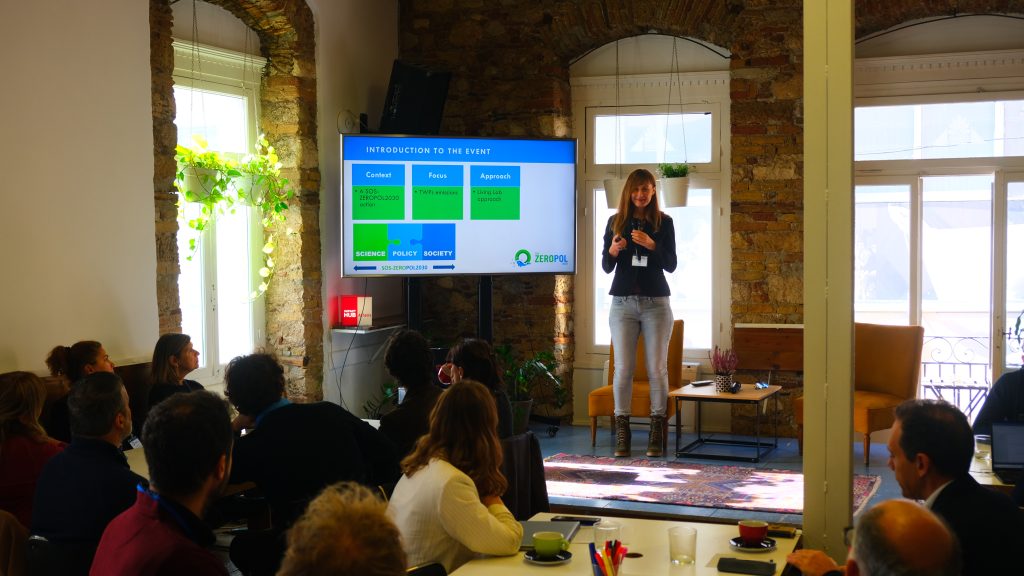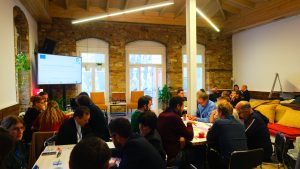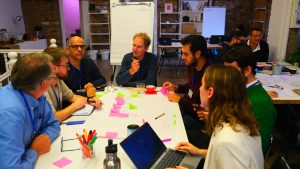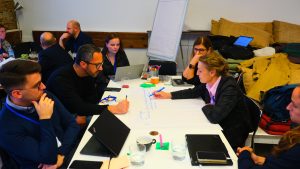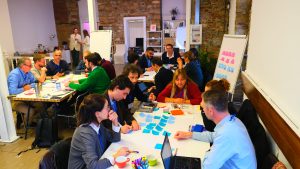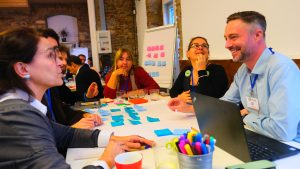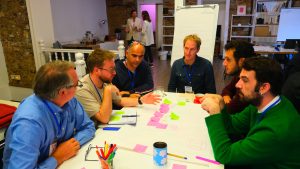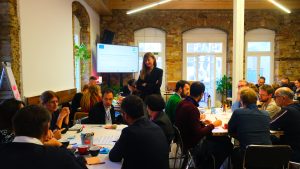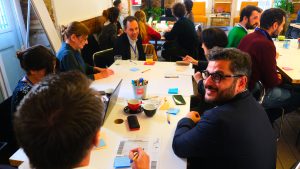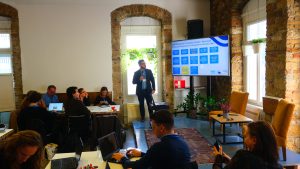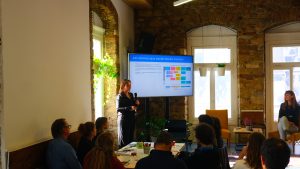The Mediterranean Information Office for Environment, Culture, and Sustainable Development (MIO-ECSDE), in partnership with SOS-ZEROPOL2030 project partners, organized the Mediterranean Living Lab, a two-day event dedicated to addressing the environmental challenges posed by tyre wear particles (TWPs). With a focus on TWPs prevention and mitigation the Living Lab brought together 35 stakeholders from 8 Mediterranean EU Members States (Croatia, Cyprus, France, Greece, Malta, Italy, Slovenia, and Spain) and 6 other EU Member States (Belgium, Bulgaria, Ireland, Germany, Norway, and The Netherlands) to tackle this pressing issue and pave the way for sustainable solutions.
A Multifaceted Approach to Understanding TWPs
The event opened with a session introducing the philosophy and objectives of the Living Lab, alongside the SOS-ZEROPOL2030 project’s mission to combat TWPs pollution. Participants delved into the sources, pathways, and impacts of TWPs, enriched by recent research and policy developments in the Mediterranean and Europe. Highlights included discussions on the Barcelona Convention Regional Plan for Marine Litter Management and associated microplastics provisions, and updates to key European policies such as the Ecodesign for Sustainable Products Regulation and the Urban Wastewater Treatment Directive.
Unfortunately, Dr. Dionysia-Theodora Avgerinopoulou, the Greek Prime Minister’s Special Envoy for the Ocean and Chair of the Environment Committee of the Hellenic Parliament, was unable to attend the opening session due to unforeseen last-minute commitments. However, Dr. Avgerinopoulou expressed her strong support for the Living Lab’s overarching objectives and reaffirmed her dedication to rallying parliamentarians from across the Mediterranean to address the pressing challenge of TWPs.
- Dr. Andy Booth, SINTEF Ocean introducing participants to the sources, pathways and impacts of TWPs
- Dr. Thomais Vlachogianni, MIO-ECSDE giving a talk on the research advances on TWPs in the Mediterranean
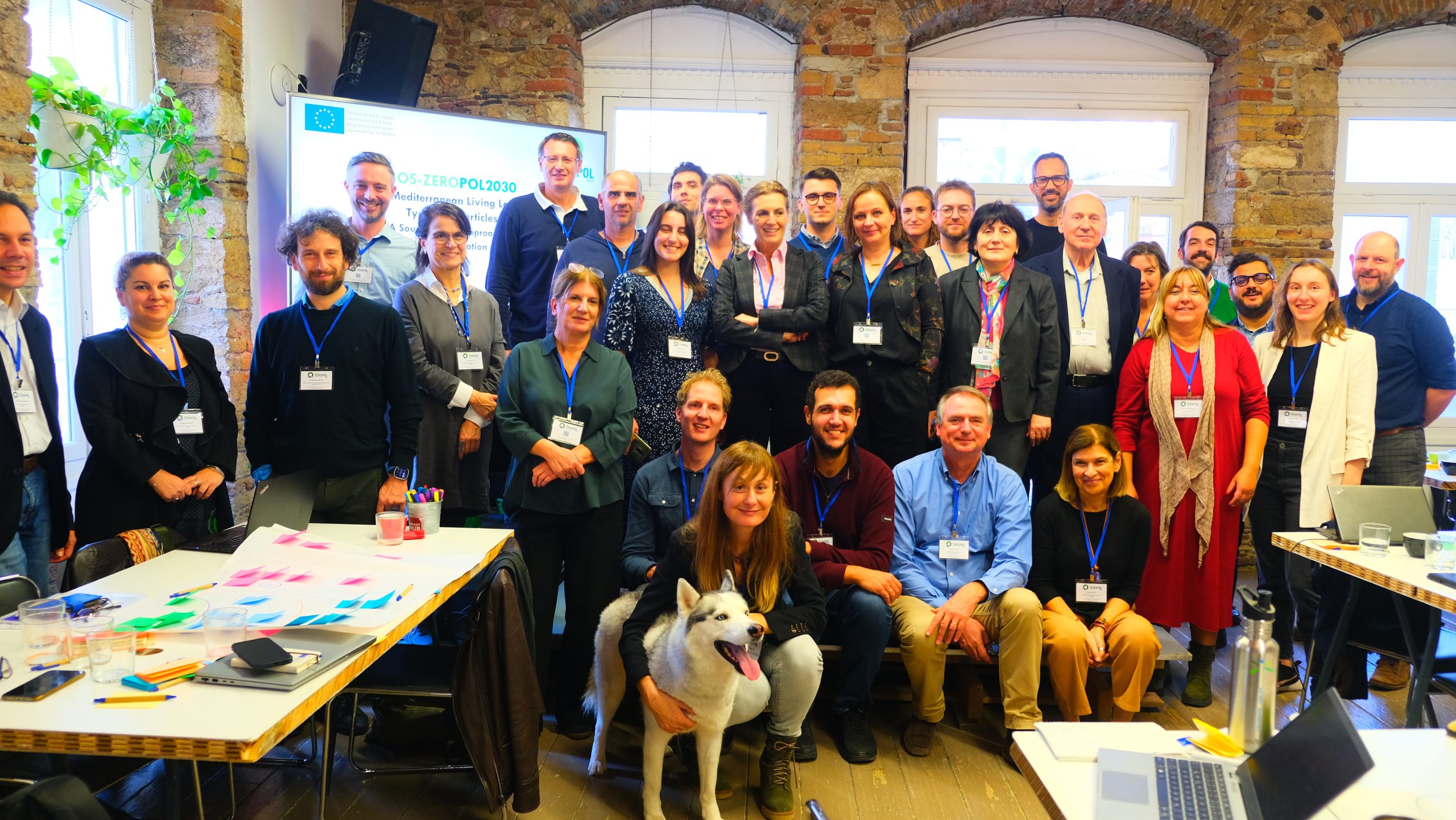
Interactive Sessions Foster Co-Creation and Co-Learning
Day one featured breakout sessions exploring stakeholders’ perspectives and challenges in addressing TWPs. Participants discussed regulatory, environmental, and technical hurdles while identifying urgent priorities for action. Day two showcased innovative solutions, including the TWPs Risk Assessment Tool developed by SOS-ZEROPOL2030 and novel approaches like magnetic extraction for potential TWPs removal in wastewater. Co-creation and co-learning sessions followed, focusing on essential resources, technologies, and criteria for evaluating TWPs mitigation strategies.
Integrated Solutions for a Complex Challenge
Addressing the environmental challenges posed by TWPs requires a multifaceted approach that balances governance, technical, regulatory, and social factors. Key actions highlighted during the Living Lab include:
- Sustainable Tyre Design: Encouraging eco-friendly materials and innovation in tyre manufacturing.
- Particle Retention Technologies: Developing advanced systems for TWP capture, wastewater treatment, and runoff management.
- Sustainable Transport: Promoting public transport and reducing reliance on heavy vehicles.
- Public Awareness and Behavior Change: Educating the public on the environmental and health impacts of TWPs while advocating for responsible driving habits.
- Standardization and Regulation: Establishing common standards for tyre manufacturing, testing, and road infrastructure to ensure consistent and impactful actions.
- Tailored Solutions: Designing mitigation strategies that align with local conditions and avoid unintended environmental side effects.
The importance of long-term feasibility and integration of these actions into a comprehensive framework was underscored.
Key Outcomes and a Path Forward
The Living Lab’s outcomes included actionable priorities and strategies, emphasizing collaboration across governments, industries, and civil society to develop targeted solutions for mitigating TWPs emissions. Securing EU funding and political support was recognized as essential for advancing research, innovation, and enforcement efforts.
“The Mediterranean Living Lab marks a pivotal step forward in the region’s and Europe’s collective efforts to combat this specific form of microplastics pollution. It underscores the urgent need for innovative, collaborative, and adaptable solutions to address the environmental challenges posed by tyre wear particles,” says Dr. Thomais Vlachogianni, Mediterranean Regional Lead of the SOS-ZEROPOL2030 project and Senior Officer at MIO-ECSDE.
The insights emerging from this Living Lab will play a pivotal role in shaping future scenarios for TWPs reduction and will serve as the foundation for the next edition of the Mediterranean Living Lab, planned for early 2025.
You can read the summary report of the Mediterranean Living Lab on TWPs here
About SOS-ZEROPOL2030
SOS-ZEROPOL2030 focuses on four priority pollutants: nutrient inputs, contaminants, plastic litter, and underwater noise, alongside two case study pollutants: per- and polyfluoroalkyl substances (PFAS) and tyre wear particles (TWPs). It addresses these issues across three European Regional Seas: the Black Sea, the Mediterranean Sea, and the North-East Atlantic.
Our Living Lab workshops on PFAS for the North-East Atlantic and the Black Sea were held earlier this year in the Netherlands and Bulgaria, respectively.
Read more on the journey of tyre wear particle in the SOS-ZEROPOL 2030 StoryMap: https://soszeropol2030.eu/resources/rolling-on-the-river-the-journey-of-tyre-wear-particle-pollution/
Read in French here
